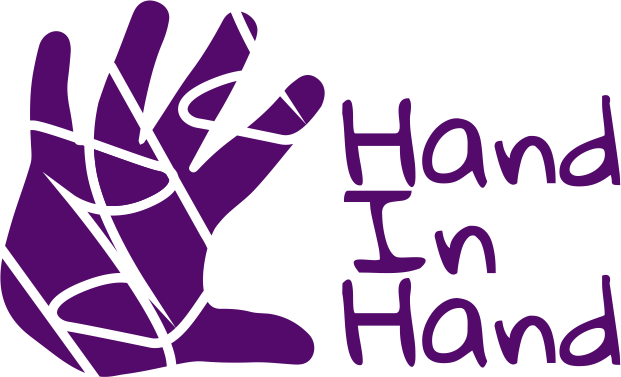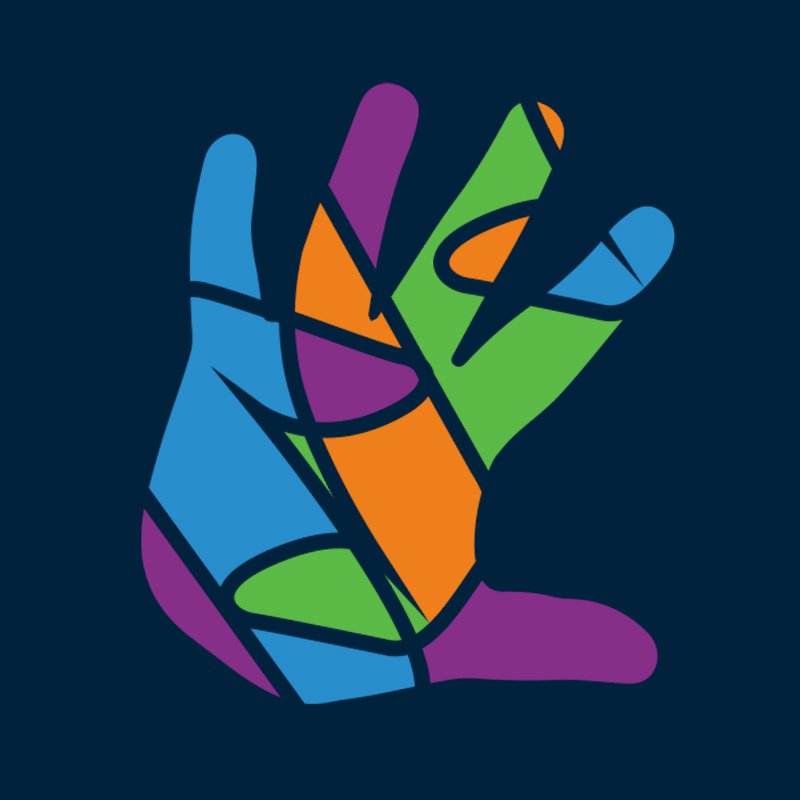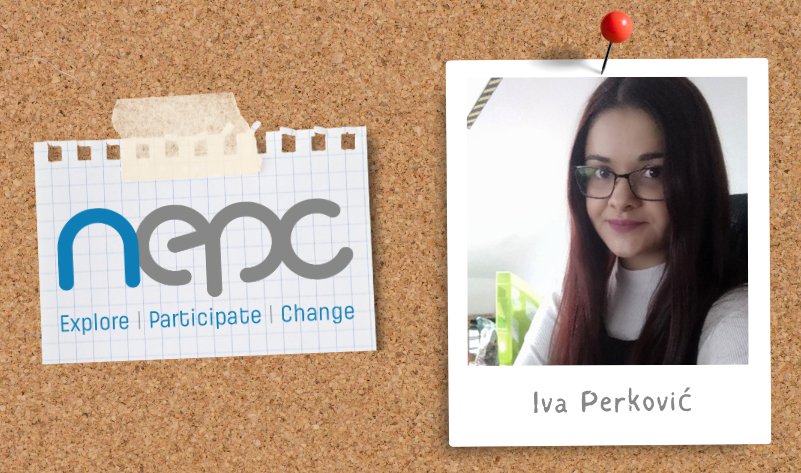




Heidi Berg Nielsen shared her insights about the relevance of the socio-emotional competencies in teachers’ development and how can mindfulness component contribute to the positive impact.
Introducing the HAND:ET Consortium & SEDA competencies is a series of web articles that will be regularly shared via HAND:ET web site and social media channels (FB, TW). We want to present the project partners through short interviews with members of the project teams on the topics from the field of their expertise that is also connected to and relevant for the HAND:ET project main theme: social and emotional competencies and diversity awareness (SEDA) and empowering teachers in schools.
HAND: ET project recognised the multitude of challenges teachers are facing in the 21st century that is marked by rapid technological developments and increasing social and cultural diversity. That comes along with a lot of expectations and pressure for them to constantly be informed and flexible but also with the request of their work to be of highest quality.
The approach this project took to empower them for the complexity of everyday working life with increasingly diverse classrooms and enable them to deal flexibly with new challenges wasn’t to work on their teaching competencies or digital competencies, but to focus on teachers by supporting their development of social and emotional competencies as well as their diversity awareness (SEDA).
What are your insights about the relevance and importance of the socio-emotional and relational competencies in the teacher profession in general and why is it not more common?
- It is important to understand that being a teacher is not just about communicating the academic material. They are in relational contact with the students all the time and are active in this contact. That is, they include themselves in the contact and it is not an equal relationship but rather an asymmetric power relationship, where it is the teacher who has the power. If one is not aware of this, it can do great harm. When you practice gaining more self-awareness and inclusiveness towards yourself, you also become better at this in relation to others. This is good for the students, as it is also for the teachers own stress level.
As mentioned earlier, one of the main goals of the HAND:ET is to address the pressure teachers are under that complex and diverse classroom are bringing into their working life and empower them to deal flexibly with new and upcoming challenges. It puts teachers’ well-being at the centre and invites them to foster self-care using the methodology based on the Mindfulness based stress reduction (MBSR).
There is an increase of the evidence-based mindfulness actions and their impact, what is MBSR and according to research, what is the extent of these actions?
- Mindfulness training is a well-researched method of training to improve mental health. Studies published in leading medical journals show that Mindfulness-Based Stress Reduction (MBSR) reduces symptoms of stress, anxiety, depression and pain (Khoo, et al., 2019, Chi, Bo, Liu, Zhang & Chi, 2018, Khoury, Sharma, Rush & Fournier, 2015; Strauss, Cavanagh, Oliver & Pettman, 2014). The beneficial effects are supported by neurological research. The structure and function of the brain change according to the MBSR in areas that are responsible for regulating stress (Pallesen, Dahlgaard & Fjordback, 2016, Lazara et al., 2005, Hölzel et al., 2011)
The MBSR is an 8-week structured program developed by Jon Kabat-Zinn in 1979 at the University of Massachusetts Medical School in the United States (Kabat-Zinn, 1990). The program is based on yoga, meditation and psychoeducation. Today, there are well-described standards for MBSR, as well as for the education of the people who mediate the action. Mindfulness is first and foremost a way of being aware, which is characterized by conscious attention to the present moment without judging, criticizing or evaluating. Instead, one trains willingness and openness to be with what is experienced and meet it with acceptance, kindness and curiosity.MBSR is rooted in the old Buddhist traditions and, like these, has a greater aim than stress reduction. The purpose is also to clarify the common human conditions, including our embodied nature and the nature of the mind, and thereby strengthen our psychosocial well-being and sustainable behaviour. Mindfulness is attention training, where attention often is directed to bodily sensations (e.g. breathing) instead of going wild in the content of the mind. Being aware of the body is a natural prerequisite for becoming familiar with the body's signals, including signals of stress, thoughts and emotions. Thereby it is possible to train to stabilize the attention in the body here and now and not to get lost in thoughts of past or future (Smallwood, Fitzgerald, Miles & Phillips., 2009, Smallwood & Schooler, 2006)
The philosophical basis of meditation claims that true happiness exists in the present and that a wandering attention gives rise to a more unhappy mind. Killingworth and Gilbert (2010) try with their study to investigate this. They equipped 2250 participants with a mobile app, which at any time contacted them during everyday activities, and asked: “How are you right now? (on a scale from very bad (0) to very good (100)), What are you doing right now? And are you thinking of something else than what you are doing right now? ”. The study shows that participants attention was somewhere else than in the present moment in 47% of all situations. Attention wandered frequently, no matter what the participants did. Participants were less happy when attention was distracted from the present. This applied to all activities also the least pleasant activities. Time series analyses showed that a wandering attention generally was the cause, and not just a consequence, of bad mood. What people thought was better at predicting their mood than the activity they were engaging in (Killingworth & Gilbert, 2010).
Several of the meditations in the program contain parts where the focus is on thoughts. Thereby training to observe thoughts as mental events and not necessarily truths. That is, the content of the thoughts is registered without identifying with the content and actively building on these. Just as we have automated patterns of behaviours, we also have thought patterns that can be highly addictive. Starting to discover one's own thought patterns along with an increased body awareness creates an inner security and an increased mental flexibility, which is the starting point for automated behaviour patterns to be re-evaluated and changed (Siegel, 2011).
A good example of a bad mental habit is negative rumination. All people ruminate as it is the brain's attempt to help us find a solution to our problem, especially if we are stressed or feeling unwell. But some people do it more than others. Several studies show that persistent rumination often does not solve problems but does the opposite. When we are stuck in negative thought patterns, we become worse at solving our problems. Studies suggest that rumination actually creates vulnerability to depression and poor mental health and is not just a result of this (Nolen-Hoeksema & Morrow, 1991 , Lyubomirsky & Nolen-Hoeksema, 1995, Treynor, Gonzalez & Nolen-Hoeksem, 2003).
By becoming more aware of and familiar with oneself, this can create more clarity in relation to discovering inner and outer patterns of behaviour. This gives you a better opportunity to change habits that are not appropriate . Vago and Silbersweig (2012) describe this process in the S-ART (Self-Awareness, Regulation, Transcendence) model: The individual starts by observing himself (self-Awareness), and he learns to regulate himself (self-Regulation), which can lead to a change (self-Transcendence) (Vago & Silbersweig, 2012).
The result can be described as the art of being with oneself in a healthy way for the benefit of both oneself and others.
Today, teachers are often under great pressure. Their working lives have high complexity and demands from many sides. Mindfulness can help them gain greater inner stability so that they can become better at navigating this complexity and pressure. It is important to have good contact with yourself and know where you are and how you feel in order to regulate yourself.
As one of the co-authors of the HAND:ET Program and an experienced developer of teacher training programs focusing on similar areas of teachers’ competences, what would be main differences of this program that make it stand out and what is crucial for this type of program to have an effect?
- This program focuses and the teachers and how they can develop and enhance their relational competence. To work with the teacher’s professional development is a way of reaching the children seeing the children as subjects and a part of a relation. The learning is taking place in the relation.
It is crucial that the teachers are met by the HAND trainers with respect and as subjects. The same way as they are trained to meet the children.
Heidi Berg Nielsen, authorized Psychologist (Cand.psych) and certified MBSR and.b-Teacher (A mindfulness based program for children) trained in Integrative Gestalt therapy and Acceptance and Commitment Therapy is part of the DCM team and content developer, trainer and supervisor in the HAND: Empowering Teachers (HAND:ET) project. Heidi will share with us her insights about the relevance of the socio-emotional competencies in teachers’ (professional) development and how can mindfulness component contribute to the positive impact of the actions.
The Danish Center for Mindfulness (DCM) was established in 2013 as part of the Department of Clinical Medicine at Aarhus University (AU). They are focused on the researching the stress and stress reduction and run evidence-based courses in mindfulness (Mindfulness Based Stress Reduction - MBSR and Mindfulness Based Cognitive Therapy - MBCT) and compassion (Compassion Cultivation Training - CCT) in cooperation with Brown University (MBSR) and Oxford University (MBCT).
DCM also offers teacher education in CCT in cooperation with Stanford University and works on a societal level to increase the knowledge and use of mindfulness-based actions in Danish healthcare, schools, criminal justice and workplaces.
DCM role in the project is the process of training the trainers in social and emotional competencies and supervision of trainings for teachers and other school staff in the HAND: Empowering Teachers system. DCM is also the lead in the development of the new HAND: Empowering Teachers Program targeting social and emotional competences and diversity awareness (SEDA) of the teachers. Together with Mid Sweden University (MIUN), they jointly created a form of program and training of the trainers that consists of all three competencies.
You can learn more about the project on the official HAND:ET website, and to stay informed about the ongoing project activities and upcoming outputs follow official project Facebook or Twitter.


